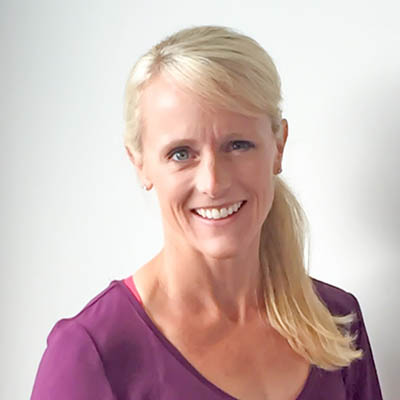We know we should eat plenty of fruits, vegetables and whole grains, but how much is ‘plenty’? Lean meats, beans, eggs and nuts are also recommended, but in what quantities? And should we cut saturated fats, salt and added sugars altogether?
Navigating healthy nutrition can be confusing. Michael Pollan, the author, activist and food guru, summed it up nicely with just seven simple words “Eat food, not too much, mostly plants”. This is good overarching guidance, but as soon as you delve a little deeper into the intricacies of optimal nutrition it gets complicated – and you risk walking into a minefield of macronutrients, where jargon and numbers overwhelm common sense.
We recently caught up with Dr. Jinger Gottschall, a research and science advisor for Les Mills and the American Council on Exercise (ACE), to find out how to venture beyond the nutrition basics and embrace a more scientific approach to optimal nutrition.
Her number one piece of advice: Track what you eat for a few days every three to four months.
“Track your intake honestly,” says Gottschall. “Most people underestimate their food intake, and overestimate their exercise output. So it's important to track accurately via an app. My Fitness Pal is probably the best as it has the broadest range of brands and items. Track your intake for at least three days, with at least one weekend day.”
Track what you eat for a few days every three to four months.
Gottschall suggests looking specifically at the percentages of carbohydrates, fat and protein, as well as total protein and added sugar. These are the elements that you can most effectively shape and modify to drive optimal nutrition.
Carbohydrates: Look on the nutrition label for the grams of total fiber and total carbohydrates. Multiply the number of fiber grams by 10. If that number is equal to or greater than the total carbohydrates per serving the food contains high-quality carbohydrates. But be aware that there is an exception to this guideline – some low carbohydrate packaged foods may not be created from natural ingredients. Please check the label!
Sugar: Try to minimize the amount of added sugar grams per day. Men should aim for less than 37.5g per day, which is 150 calories or 9 tsp. Women should aim for less than 25g per day, which is 100 calories or 6 tsp. Another rule is less than 10 percent of your total calories.
Fats: Foods high in saturated fats – like beef, lamb, pork, cream, butter, and cheese – are what you need to watch. Your daily intake should be 5-6 percent of your total calorie intake, for example 13g of saturated fat, which is 120 calories if you typically ingest 2000 calories per day.
Protein: Your optimal protein intake is based on your body weight and how active you are. If you're less active, aim for 1.2g of protein per kg of body weight per day. If you're more active aim for 2g of protein per kg of body weight per day. For example, if you're 65kg and less active, your ideal daily protein intake would be 65 x 1.2 = 78g of protein a day. (Check out the activity category table below.)
Fiber: Your daily fiber intake will depend on your sex and age. Everyone should aim for 25g of fiber a day. Men under 50 years should aim for 30-38g, women under 50 aim for 20-25g.
How many calories should you consume?
If you’re keen to get a gauge on your optimal calorie intake, Gottschall suggests you follow this simple formula that uses your age, height (in centimeters), weight (in kilograms) and activity level based on the categories below:
Activity level:
1 non-active
1.2 light (1-3 moderate sessions per week)
1.4 moderate (4-5 moderate sessions per week)
1.6 active (6-7 regular to vigorous sessions per week)
1.8 very active (7-8 sessions including high-intensity per week)
2.0 extremely active (9+ sessions including high-intensity per week)
Women minimum calorie intake:
(10 x weight) + (6.25 x height) – (5 x age) - 161 = Minimum calorie intake
Men minimum calorie intake:
(10 x weight) + (6.25 x height) – (5 x age) + 5 = Minimum calorie intake
Multiply your minimum calorie intake by your activity level to find your suggested daily calorie intake.
When should you eat?
“Be flexible,” advises Gottschall. “I think an important rule that we should get back to is to eat when you are hungry. At the same time, be conscious about what you're doing in the day so that you're not calorie deprived before exercising or before you have an important meeting or event where you need to be cognitively aware.”
Gottschall suggests eating quality foods that resemble a rainbow, meaning a variety of colors from fruits, vegetables, and grains. In addition, pay particular attention to the types of food that challenge you the most, but don't exclude them. "My issue is sweets,” she says “I could literally eat chocolate chip cookies for breakfast! It’s important to recognize the foods you're likely to over-consume and limit them a bit – don’t exclude, just limit.”
The trick is to find healthy alternatives to the less-than-healthy foods you love. “It might take a little bit more effort at the front end, but it’s worth it as it will set you up for life,” says Gottschall. “If you’re forcing yourself to eat things like brussels sprouts that you don't really like, it’s not going to be a consistent thing. And consistency is the absolute key to finding an eating pattern that works for you – one you can maintain, and enjoy.”
Six steps to long-term dietary success
- Eat when you are hungry
- Drink more water
- Replenish after training
- Discover foods you enjoy
- Treat yourself
- Avoid extremes

Jinger Gottschall, Ph.D., is a research scientist and science advisor for the American Council on Exercise (ACE). She earned her doctorate in Integrative Physiology with a focus on physical activity and nutrition. She has led numerous studies into the effectiveness of various exercise regimes and works with Les Mills to test both the safety and intensity of LES MILLS programs, helping ensure that exercisers get the best results from the time they spend training. In addition to her research roles, Dr. Gottschall is also a Les Mills Instructor and fitness studio founder.








